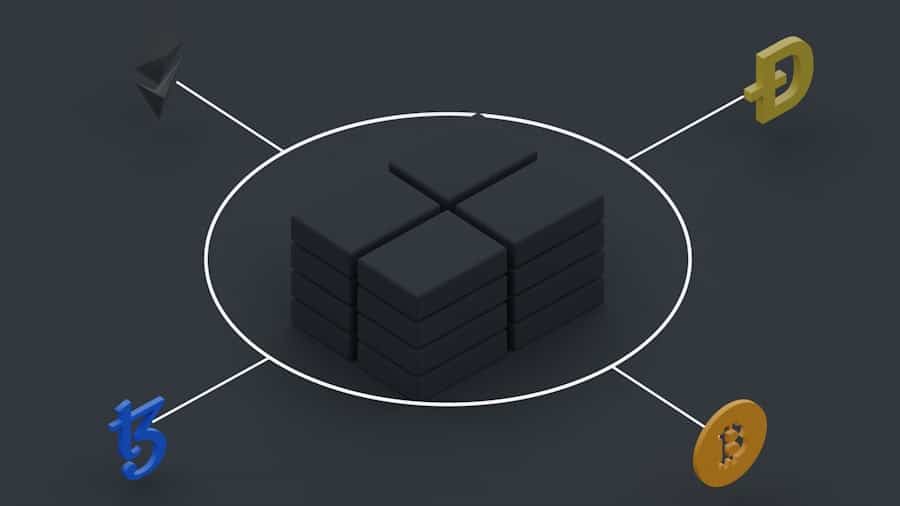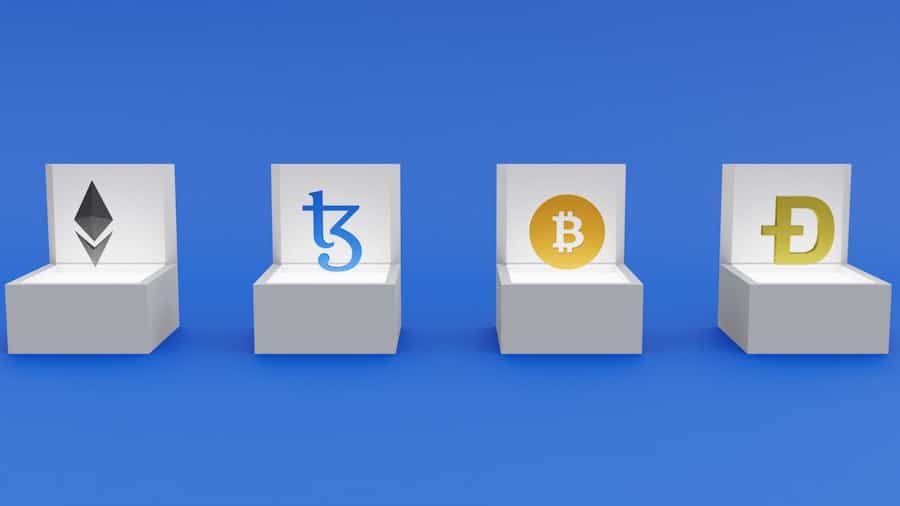Blockchain technology has emerged as a revolutionary force in the digital landscape, fundamentally altering how data is stored, shared, and secured. At its core, blockchain is a decentralized ledger that records transactions across multiple computers in such a way that the registered transactions cannot be altered retroactively without the consensus of the network. This characteristic of immutability, combined with transparency and security, makes blockchain an attractive solution for various sectors, including finance, healthcare, and notably, government operations.
The decentralized nature of blockchain eliminates the need for a central authority, thereby reducing the risk of single points of failure and enhancing trust among participants.
Each block is linked to the previous one, forming a chain that is resistant to tampering.
This structure not only ensures data integrity but also facilitates real-time auditing and verification processes. As governments around the world increasingly digitize their services and infrastructures, the potential for blockchain to enhance security and efficiency becomes more pronounced. The integration of blockchain into government systems could lead to more robust frameworks for managing sensitive information, ultimately fostering greater public trust in governmental operations.
Key Takeaways
- Blockchain technology offers a decentralized and secure way to store and transfer data, making it an attractive solution for securing government digital infrastructures.
- Current challenges in securing government digital infrastructures include the risk of data breaches, cyber attacks, and lack of transparency and accountability.
- Blockchain can address security issues in government digital infrastructures by providing immutable and transparent records, enhancing data security, and reducing the risk of fraud and manipulation.
- Potential use cases for blockchain in government operations include secure and transparent voting systems, efficient and tamper-proof record-keeping, and streamlined identity management.
- Regulatory and policy considerations for implementing blockchain in government include the need for clear standards, interoperability, and compliance with data protection laws, as well as the importance of engaging with stakeholders to build trust and understanding.
Current Challenges in Securing Government Digital Infrastructures
Government digital infrastructures face a myriad of security challenges that threaten their integrity and functionality. One of the most pressing issues is the vulnerability to cyberattacks. With increasing reliance on digital platforms for essential services such as tax collection, public health management, and social services, government systems have become prime targets for malicious actors.
High-profile breaches have exposed sensitive citizen data, leading to significant financial losses and erosion of public trust. For instance, the 2020 cyberattack on the U.S. Treasury and Commerce departments highlighted the vulnerabilities inherent in centralized systems, where a single breach can compromise vast amounts of data.
Moreover, the complexity of government IT systems often leads to inadequate security measures. Many agencies operate on outdated infrastructure that lacks modern security protocols, making them susceptible to exploitation. The challenge is compounded by the need for interoperability among various government departments and agencies, which can create additional entry points for cyber threats.
Furthermore, the rapid pace of technological advancement means that government entities often struggle to keep up with emerging threats and vulnerabilities. This lag in adopting cutting-edge security measures can leave critical systems exposed and unprotected.
How Blockchain Can Address Security Issues in Government Digital Infrastructures

Blockchain technology offers a promising solution to many of the security challenges faced by government digital infrastructures. By decentralizing data storage and management, blockchain reduces the risk of single points of failure that are prevalent in traditional centralized systems. Each transaction recorded on a blockchain is encrypted and linked to previous transactions, creating a secure chain that is nearly impossible to alter without consensus from the network participants.
This inherent security feature can significantly mitigate risks associated with data breaches and unauthorized access. Additionally, blockchain’s transparency can enhance accountability within government operations. Every transaction on a blockchain is visible to all participants in the network, which means that any attempt to manipulate or alter data can be easily detected.
This level of transparency can deter fraudulent activities and promote ethical behavior among government officials and employees. Furthermore, smart contracts—self-executing contracts with the terms of the agreement directly written into code—can automate processes and ensure compliance with regulations without human intervention.
Potential Use Cases for Blockchain in Government Operations
The potential applications of blockchain technology in government operations are vast and varied. One prominent use case is in identity management. Governments can leverage blockchain to create secure digital identities for citizens, which can be used for various services such as voting, tax filing, and accessing social services.
By utilizing a decentralized identity system, individuals can have greater control over their personal information while reducing the risk of identity theft and fraud. Another significant application lies in supply chain management for public procurement processes. Blockchain can provide an immutable record of transactions related to government contracts, ensuring transparency and accountability in how public funds are spent.
For example, by tracking the procurement process on a blockchain, stakeholders can verify that goods and services are delivered as promised and that funds are allocated appropriately. This level of oversight can help combat corruption and inefficiencies that often plague government procurement systems. Additionally, blockchain can enhance public health initiatives by securely sharing health data among various agencies while maintaining patient privacy.
During public health crises such as pandemics, timely access to accurate data is crucial for effective response strategies. Blockchain can facilitate secure data sharing between health departments, hospitals, and research institutions without compromising individual privacy rights.
Regulatory and Policy Considerations for Implementing Blockchain in Government
Implementing blockchain technology within government infrastructures necessitates careful consideration of regulatory and policy frameworks. Governments must establish clear guidelines that address issues such as data privacy, security standards, and interoperability with existing systems. The decentralized nature of blockchain poses unique challenges regarding jurisdiction and accountability; thus, policymakers must navigate these complexities to create effective regulations that foster innovation while protecting citizens’ rights.
Moreover, there is a need for collaboration between various stakeholders—including government agencies, technology providers, and civil society organizations—to develop comprehensive policies that govern blockchain use. This collaboration can help ensure that diverse perspectives are considered in policy formulation, ultimately leading to more robust frameworks that address potential risks associated with blockchain implementation. Additionally, governments must invest in training programs to equip their workforce with the necessary skills to manage and operate blockchain systems effectively.
Another critical aspect is addressing legal considerations surrounding smart contracts and digital identities. Policymakers must determine how existing laws apply to these technologies and whether new legislation is required to accommodate their unique characteristics. For instance, questions regarding liability in cases of smart contract failures or disputes need to be addressed to provide clarity for all parties involved.
The Role of Public-Private Partnerships in Advancing Blockchain Security Solutions

Public-private partnerships (PPPs) play a vital role in advancing blockchain security solutions within government infrastructures. By collaborating with private sector technology firms that specialize in blockchain development, governments can leverage expertise and resources that may not be available internally. These partnerships can facilitate knowledge transfer and innovation while accelerating the adoption of blockchain solutions tailored to specific governmental needs.
For example, several cities have engaged in PPPs to pilot blockchain initiatives aimed at improving municipal services. In 2018, the city of Zug in Switzerland launched a pilot project using blockchain technology for secure voting processes in local elections. This initiative was made possible through collaboration with private tech companies specializing in blockchain solutions.
Such partnerships not only enhance the technical capabilities of government agencies but also foster an environment conducive to experimentation and innovation. Furthermore, PPPs can help address funding challenges associated with implementing new technologies. Governments often face budget constraints that limit their ability to invest in advanced security solutions like blockchain.
By partnering with private firms willing to invest resources or share costs, governments can implement pilot projects or full-scale deployments without bearing the entire financial burden alone.
Potential Impact of Blockchain on Government Efficiency and Transparency
The integration of blockchain technology into government operations has the potential to significantly enhance both efficiency and transparency. By automating processes through smart contracts and streamlining data management via decentralized ledgers, governments can reduce administrative burdens and improve service delivery times. For instance, automating tax collection processes using blockchain could minimize errors associated with manual entry while ensuring timely payments.
Transparency is another critical benefit that arises from implementing blockchain solutions within government infrastructures. The ability to track transactions in real-time fosters greater accountability among public officials and agencies. Citizens can access information regarding how public funds are allocated and spent, which can lead to increased trust in governmental institutions.
For example, if citizens can view real-time data on public spending through a blockchain-based platform, they are more likely to engage with their local governments and hold officials accountable for their actions. Moreover, enhanced transparency can lead to improved citizen engagement in democratic processes such as voting. By utilizing blockchain for secure voting systems, governments can ensure that election results are verifiable and tamper-proof.
This level of transparency not only boosts public confidence in electoral outcomes but also encourages higher voter participation rates.
The Future of Blockchain in Securing Government Digital Infrastructures
As governments continue to navigate the complexities of digital transformation, blockchain technology stands out as a promising solution for enhancing security within their digital infrastructures. The unique characteristics of blockchain—decentralization, immutability, transparency—offer significant advantages over traditional centralized systems that are often vulnerable to cyber threats and inefficiencies. While challenges remain regarding regulatory frameworks and implementation strategies, the potential benefits of adopting blockchain are too significant to ignore.
The future of blockchain in securing government digital infrastructures will likely depend on collaborative efforts between public entities and private sector innovators who can drive technological advancements forward. As more governments explore pilot projects and partnerships aimed at integrating blockchain solutions into their operations, we may witness a paradigm shift in how public services are delivered—one characterized by increased efficiency, enhanced security measures, and greater transparency for citizens worldwide.
In a recent article on

